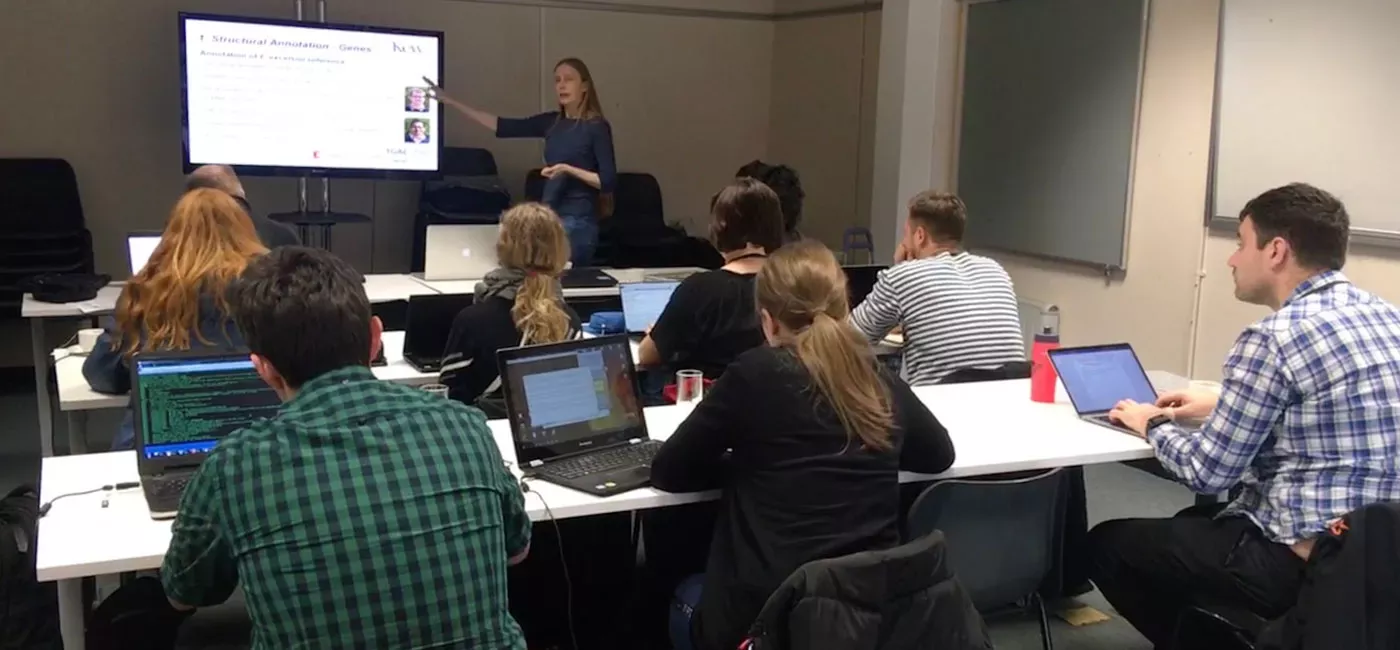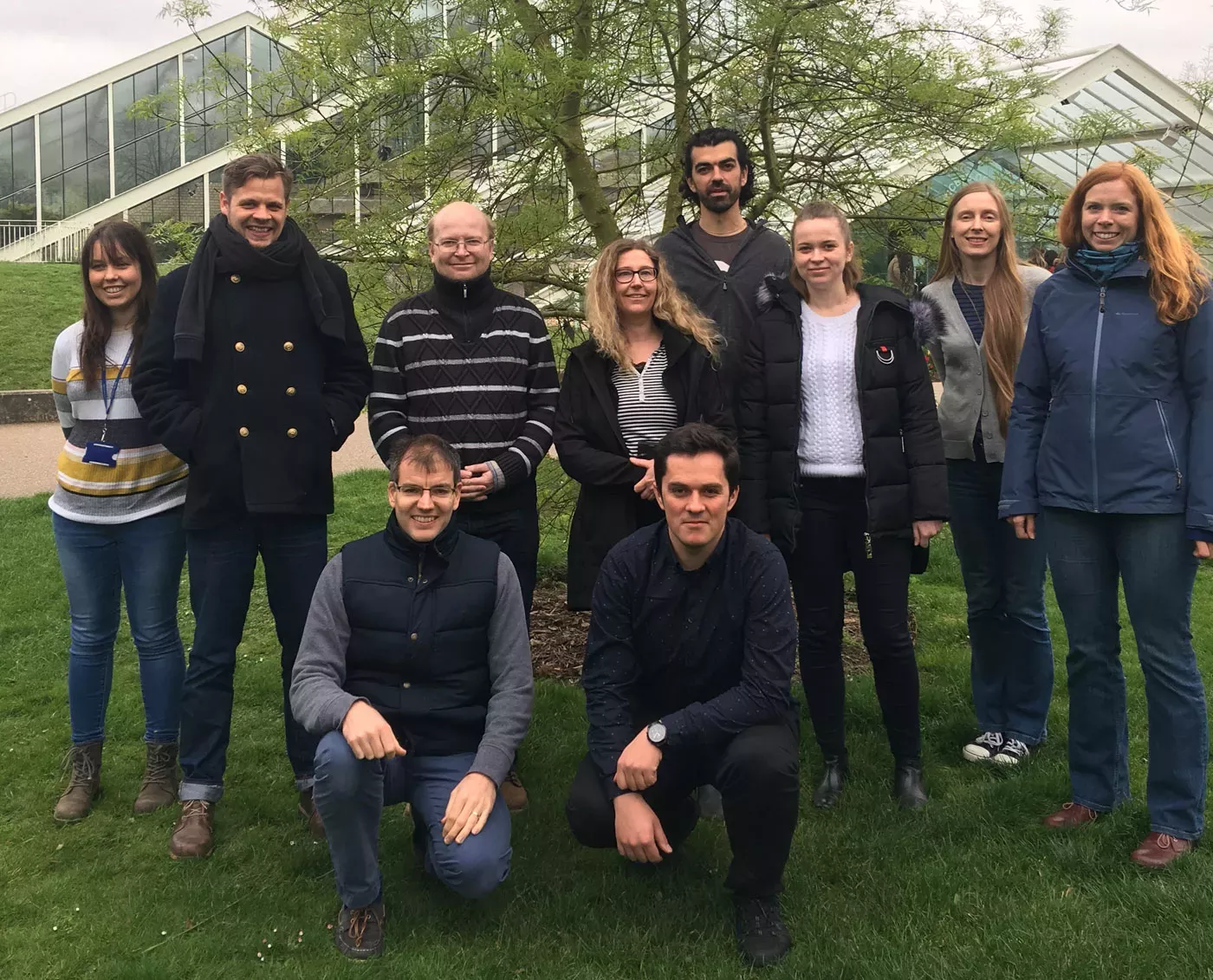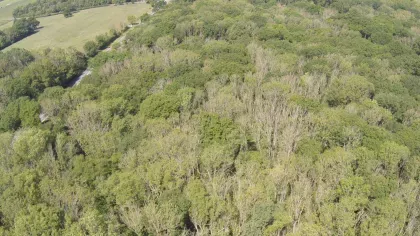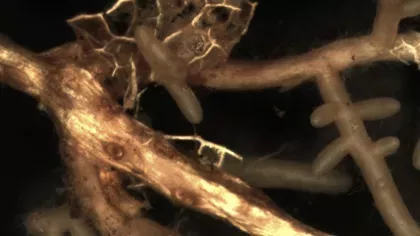24 May 2019
Accelerating ash breeding programmes
Ash dieback is a fungal disease severely threatening Europe's woodlands. Collaborating with European researchers is key to fighting back.

A devasting fungal disease
Ash (Fraxinus excelsior) is one of the most common broadleaved trees in the UK. All over Europe, ash trees are dying due to a pathogenic fungus. This loss of ash will impact the many native ecosystems they grow within, and pose a threat to the hundreds of insect and lichen species found on ash trees. Less than 5% of ash trees are unaffected by the fungus and in the worst hit areas up to 85% of trees have died.
The disease is called ash dieback and the fungus causing it (Hymenoscyphus fraxineus) has recently invaded Europe from its native range in Asia. Spores from the fungus germinate on ash leaves, causing the death of wood when the fungus enters twigs. Once the fungus reaches the tree trunk, it can kill the whole tree.
Scientists from the Plant Health team at Kew are at the forefront of research on ash dieback, assessing the current impact, and predicting the future severity of the disease. A major focus of the team is on the analysis of ash tree genomes to understand the genetic basis and extent of resistance to the disease.
Knowledge sharing
A crucial aspect of the fight against ash dieback is knowledge and expertise sharing. Researchers across Europe are working to understand ash dieback disease using different approaches and methods. Many of them have the ultimate aim of breeding ash trees that can resist ash dieback. By sharing expertise, knowledge and skills, this research can be accelerated and allow for the creation of collaborative multi-disciplinary solutions.
Kew recently hosted a two-week workshop, bringing together researchers from across Europe at the forefront of ash tree and ash dieback research. The main focus of this workshop was the analysis of ash tree genomic data and hands-on bioinformatics training sessions were a key component of this. As well as talks by the Plant Health research team, the workshop included presentations from each of the attendees, focusing on research on ash dieback disease in Germany, Austria, Poland, France, Denmark and Ireland.

A future of collaborative research
Partly as a result of the workshop, it is planned that Kew will provide input into the pan-European Adaptive BREEDING for productive, sustainable and resilient FORESTs under climate change (B4EST) project. This project aims to increase forest survival, health, resilience and productivity.
There is also an interest from Austrian researchers in collaborating with Kew to help develop resistant ash trees. Kew scientists are also working closely with researchers in Poland to improve the ash reference genome and to maximise its success.
Increased collaboration will accelerate ash breeding programmes across Europe.

Acknowledgments
We are grateful to the Erica Waltraud Albrecht Endowment fund at the Kew Foundation for supporting the ash genomics workshop. Thanks to Mark McMullan of the Earlham Institute for leading sessions on the ash dieback fungus genome.



